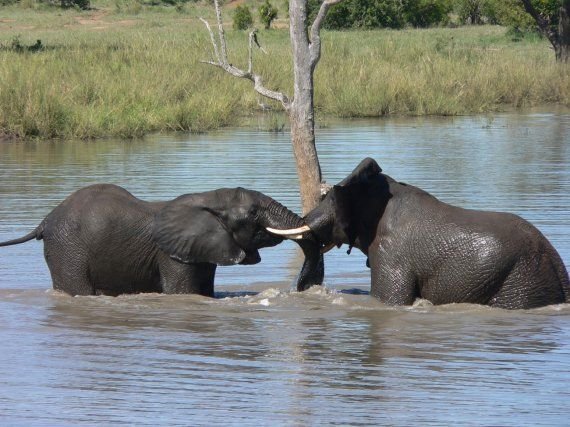The conservation of the African elephant takes more that game parks and nature reserves. Good education, less corruption and higher welfare levels are at least as important. This has emerged from large-scale research on the distribution of the African elephant led by Wageningen researchers Fred de Boer and Frank van Langevelde. They published their results in the March issue of Biological Conservation.
Their starting point was the question of which factors determine whether elephants inhabit an area and in what numbers. Is it ecological factors such as sufficient water and food that count, or does the influence of humans play a big role? There are two parts to the answer, says De Boer (Resource Ecology Group). The presence of elephants in an area depends on the natural environment. Without sufficient food and water, no elephants. But the number of elephants depends more on humans than on nature. The denser the human population, for instance, the fewer the elephants. Elephants also thrive more in areas with little corruption and illiteracy and a higher standard of living.
‘Our study shows how complex it all is,’ says De Boer. ‘It is not the case that you will get there with just better education or less poverty. You also need a better nature conservation policy, a less corrupt civil service and awareness among the local people.’ He calls this a shift of focus. Creating more reserves may not be the best way to save the elephant. ‘It’s not either/or, it’s both/and. Elephants have an enormous range. Reserves are important as a safe haven for them.’
The limited role of reserves is apparent from the distribution data, too. There are almost twice as many elephants living outside protected areas (620,000) as within them (347,000). The density of elephant populations in reserves, by contrast, is bigger than that outside them: 0.41 elephants per square kilometre as opposed to 0.25.

